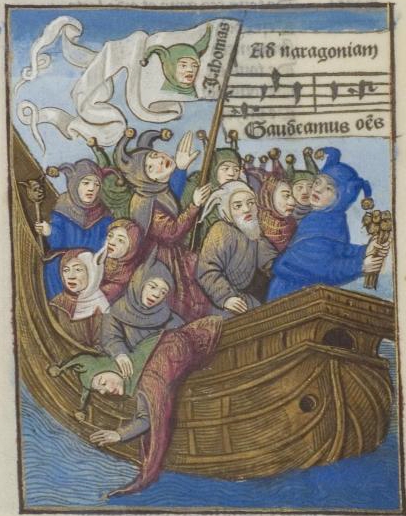
Satire is a double-edged sword. It can be a form of subversion and resistance, by speaking truth to power, but it can equally serve to enforce moral and social norms by exposing and ridiculing any deviation from them. It can be deeply committed to social and political reform, but often, it also positively relishes in dissecting human vice and folly in graphic detail and with a lurid sensationalism that undercuts its own moral impetus. Taking inspiration from classical verse satirists such as Horace, Martial, or Juvenal, early modern writers used satire for a variety of purposes: to make serious points about social and religious reform palatable by sweetening them with the sugared pill of humour or to spice up political propaganda by ridiculing their opponents, but also to showcase their sparkling wit and to discuss, under the guise of moral reform, taboo topics such as sexual transgressions and other bodily functions that are fundamental to human existence.
In this seminar, we will read some of the most brilliant and funny works of satire in verse, prose, as well as drama, from the sixteenth to the eighteenth century. We will begin with arguably the most influential early modern work of satire, Erasmus of Rotterdam’s Praise of Folly (1509). In this speech, the personification of Folly praises herself as a necessary ingredient for a fulfilling life and social harmony. While castigating the abuses of politicians and the Church under the guise of Folly’s self-praise, Erasmus’ fine irony ultimately leavens open the question whether those whom the world has counted as fools may not ultimately be wiser than the rest of us. Other texts to be discussed in class include the satirical comedy Volpone (1606) by Shakespeare’s contemporary Ben Jonson, which deals with the (mis-)adventures of a ruthless and brilliant Venetian conman and his even more ruthless servant Mosca. We will further read excerpts from Jonathan Swift’s Gulliver’s Travels, a text that is utopian and satirical at the same time in its portrayal of fantastic voyages of discovery, and some of Jonathan Swift’s “excremental” poems, in which he muses on the difference between apparent female beauty and the bodily realities behind it. However, we will also read Lady Mary Wortley Montague’ less than amused reply to Swift, in which she mercilessly dissects Swift’s misogyny in turn. Finally, we will finish with another thriving genre of the early eighteenth century, the so-called ballad opera, as exemplified by John Gay’s short Beggar’s Opera (1728). One of the most successful plays of the entire eighteenth century, The Beggar’s Opera combines music and drama in a fast-paced and deeply cynical account of the London underworld and the moral and political corruption that extends beyond criminal low-lives to the very top of the political hierarchy.
In order to gain credit, regular attendance and active participation in class discussions are mandatory. (More than two unexcused absences disqualify students from gaining credit.) Students are expected to give a presentation during the semester and write a seminar paper at the end of the semester.
Learning outcomes: On completion of the course, students will have practised their close reading skills and have become familiar with the aesthetic conventions of satire and its moral and political possibilities and limitations. They will have learned to evaluate literary texts critically in the form of research papers and to use both textual evidence and secondary sources to develop scholarly arguments.
Bibliography: Students are expected to acquire a copy of the following edition in the course of the semester: Ben Jonson, Volpone, ed. Robert N. Watson (revised edition), New Mermaids, London: Bloomsbury, 2019. All other texts will be made available online on Moodle.
- Enseignant·e: Kilian Markus Schindler
